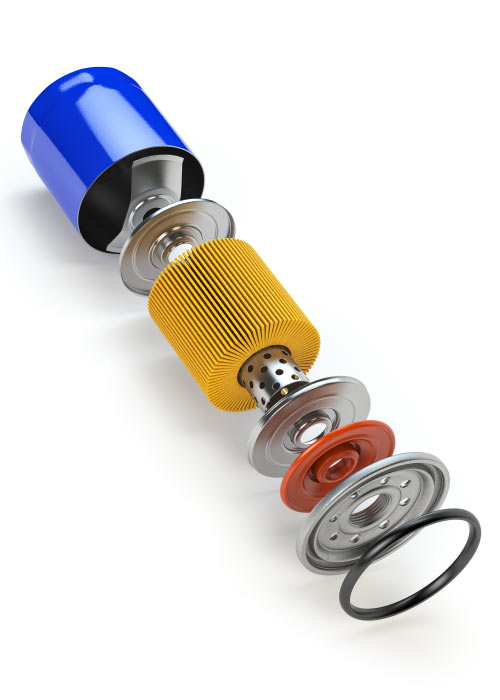Filters play a crucial role in enhancing the efficiency of engines and industrial systems. The performance of filters is directly related to the quality and characteristics of the materials used in their production. This article discusses the materials used in filter manufacturing and their impact on performance.
Materials: Air filters are commonly made from paper, foam, fabric, and synthetic fibers. Paper filters usually have a broad pore structure and effectively capture dust and particles. Foam filters are known for their lightweight and high filtration capacities, while fabric and synthetic fibers can be more durable and long-lasting.
Performance Impact: Paper filters provide high efficiency but can suffer performance degradation when exposed to moisture and oil. Foam filters are preferred for their low cost and reusability. Fabric and synthetic fiber filters offer longer lifespans and perform well under more challenging conditions.
Materials: Oil filters typically consist of a metal outer casing and internal filter elements made from cellulose, synthetic fibers, or composite materials. Cellulose materials are cost-effective and provide adequate filtration but have a shorter lifespan. Synthetic fibers offer higher filtration capacities and durability.
Performance Impact: Cellulose filters work effectively with high-viscosity oils but are less durable compared to synthetic fibers, which provide longer-lasting performance and capture finer particles. The metal outer casing enhances the filter's durability and helps in cleaning the engine oil.
Materials: Fuel filters are generally made from cellulose, synthetic fibers, and metal components. Cellulose filters are low-cost and provide sufficient filtration but can become clogged with water and debris. Synthetic fibers offer higher filtration capacity and are more resistant to water.
Performance Impact: Cellulose filters are generally more affordable but require more frequent replacements. Synthetic fibers provide longer lifespan and extend the life of injectors and fuel systems. Metal components add extra durability to the filters.
Materials: Cabin filters are commonly made from pollen, activated carbon, and HEPA (High Efficiency Particulate Air) filter materials. Pollen filters capture larger particles, activated carbon filters remove odors and gases, and HEPA filters capture fine particles effectively.
Performance Impact: Pollen filters effectively capture dust and pollen. Activated carbon filters improve air quality by removing odors. HEPA filters provide the highest air quality but can be more expensive.
Materials: Water filters are typically made from carbon, ceramic, and polymer materials. Carbon filters remove chemical contaminants and odors. Ceramic filters are effective against microorganisms, while polymer filters capture particles effectively.
Performance Impact: Carbon filters efficiently remove chemicals and odors, ceramic filters eliminate microorganisms, and polymer filters ensure clean water by capturing particles.
At Core Filter, we use high-quality materials to ensure the optimal performance and longevity of your filters. Our products offer effective filtration solutions for a variety of applications and conditions.
